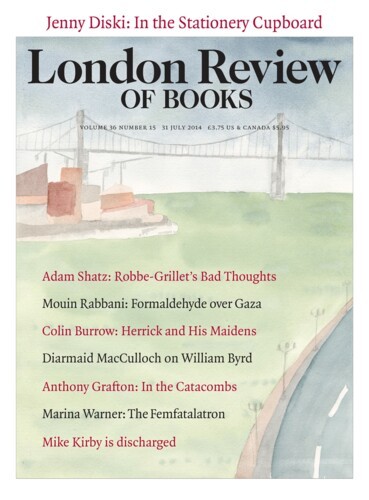In the course of the current debate about Scottish independence I’ve noticed a few references comparing it to an anti-colonial struggle: the poor oppressed Scots against their arrogant English masters. This is historical nonsense. Scotland joined the Union originally in order to share in the benefits of England’s overseas colonialism, after its own had failed; and thereafter played a disproportionate part in the expansion and rule of the British Empire, from the butt end of the gun. It has also shared greatly – maybe disproportionately again – in the governance of Britain itself, as well as in its culture. It may be that the loss of the empire has removed one of the original Scottish motives for the Union, and so boosted nationalism in that way. But that is a very different thing from painting it as a rebellion by colonial victims. On the other hand, colonialism/imperialism has moved on from the mid-20th century.
Bernard Porter
Bernard Porter’s recent books include Imperial Britain: What the Empire Wasn’t and Empire Ways. He lives in Stockholm.
How bad are we? Genocide in Tasmania
Bernard Porter, 31 July 2014
It’s well known now that contact with British settlers in the early 19th century led to the extinction of the native Tasmanians; it was pretty well known at the time too. But much about that extinction is obscure, including the numbers involved: most estimates suggest that in 1803 between five and ten thousand aborigines lived on the island, and that by 1876 there were none –...
Too Glorious for Words: Lawrence in Arabia
Bernard Porter, 3 April 2014
T.E. Lawrence was one of history’s winners and one of its great losers. He was a winner in terms of the mythology that surrounded his reputation both in his own day and afterwards, as reflected in the 1962 David Lean biopic, presenting him as the romantic hero – tall, blue-eyed, in flowing robes – he always wanted to be. His failures are familiar to anyone who has taken any...
Hannes Råstam’s Thomas Quick: The Making of a Serial Killer was translated into English earlier this year. We can highly recommend it for any fan of Nordic noir. Thomas Quick trumps any of Henning Mankell or Stieg Larsson’s villains, with more than thirty victims to his name: boys, girls, women, old men, blacks, whites; slaughtered all over Sweden and Norway (and one in Finland) between 1964 and the early 1990s, by knifing, clubbing, strangulation or suffocation; sometimes raped (both sexes); dismembered; and in one case cannibalised. He was tried for eight of the murders, and found guilty of all of them, serving his sentences in Säter psychiatric prison in Dalarna. He puts British ‘rippers’ in the shade. Except that he doesn’t. Because he almost certainly didn’t commit any of these crimes. He was formally pardoned for the last of them a few months ago.
Are British governments the most secretive in the ‘free’ world? The contrast between Downing Street’s response to the Snowden revelations and others’ suggests so. Almost every European and South American leader has expressed shock at the degree and extent of surveillance Snowden uncovered, and set in motion measures to limit or at least oversee it. There are popular movements against it. I observed one this summer in Halle – but then the East Germans have had experience of this kind of thing. In Britain there’s almost no public protest; just Hague’s assurance that ‘if you have nothing to hide you have nothing to fear’ (didn’t Goebbels say something like that?), MI5 splutterings about ‘national security’ and condemnations of Snowden et al from the prime minister on down to the Daily Mail. Now we learn that British governments have been hiding our history from us, in the same spirit.
Pieces about Bernard Porter in the LRB
Lumpers v. Splitters: How to Build an Empire
Ferdinand Mount, 31 March 2016
‘Those who make many species are the “splitters” and those who make few are the “lumpers”,’ Charles Darwin wrote in 1857 to his friend, the great botanist...
Read anywhere with the London Review of Books app, available now from the App Store for Apple devices, Google Play for Android devices and Amazon for your Kindle Fire.
Sign up to our newsletter
For highlights from the latest issue, our archive and the blog, as well as news, events and exclusive promotions.



